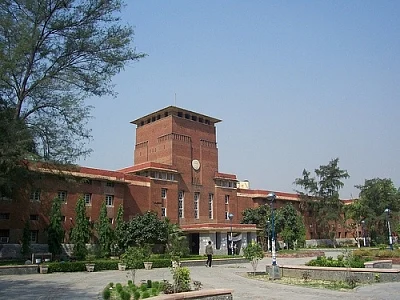A day after the UGC said that the Common University Entrance Test (CUET) would be made mandatory for all undergraduate students applying to central universities, in an attempt to create an 'equal platform' for all students, Delhi University's (DU's) Academic Council said that it was likely to lead to more inequality.
A meeting was scheduled to discuss the CUET and its implementation, and a dissent note was issued by the Academic Council after the meeting, highlighting the issues that the CUET would lead to.
"Admission through CUET will make the terrain even more unequal. Such a filter will result in an additional expenditure pf parents and students towards coaching, and therefore, marginalises those coming from disadvantageous backgrounds."DU's Academic Council
It Will Disregard Efforts of Class XII Students, Says AC
The Academic Council noted that the CUET would disregard the continuous performance of students in their most important year of studies, and hence, lead to 'complete erosion of Classes XI and XII.'
It added, "An exam run for crores of students may end up creating the issue of many students with the same scores."
It further stated that the change was too sudden for the current batch of Class XII students who had to study online and were already under a lot of stress.
'A Less Flexible System'
The council observed that the proposed system was less flexible than the DU's admission process that organically evolved over the years.
It added in the note that the new system would curtail the autonomy of institutions to respond to ground realities. Emphasising this, the Academic Council gave the example of science courses that had dropout rates as high as 30 percent within a year as students shifted to technical courses.
It said, "Cut-offs are decided so as to have desired over-admission to ensure that seats do not go empty at any cost within a few months of admission closure. This helps institutions to give chance to more students who would otherwise miss admission even as seats fall vacant a little later and (2) retain teachers as the employment of teachers is on the basis of sanctioned strength or actual – whichever is less. It is important to discuss if the new system will provide such flexibility to institutions."
It highlighted other issues that might arise once the CUET is implemented. The note posed the question of how the performance of a student would be compared to that of another student who has scores of some other allied subject.
It further noted, "As minimum eligibility for various courses, are we justified in replacing English by 'Any one language'? Has the premise for requiring English as minimum eligibility changed? Why cannot we retain these criteria? Dropping the requirement of '50% or more in one Compulsory Language i. e. English' or calculating merit on the basis of scores in English along with other Electives needs to be debated. For UG courses where medium of instruction is English and no reading material is available in any other language, this may create issues for students and teachers."
It also asked why Sanskrit had not been included under Section 1.
The Academic Council concluded the note by saying that without addressing these key questions, the desirability and feasibility of the CUET remained unknown. It added that DU admitted over 70,000 students every year and the admission procedure should not be changed in a rushed manner.
